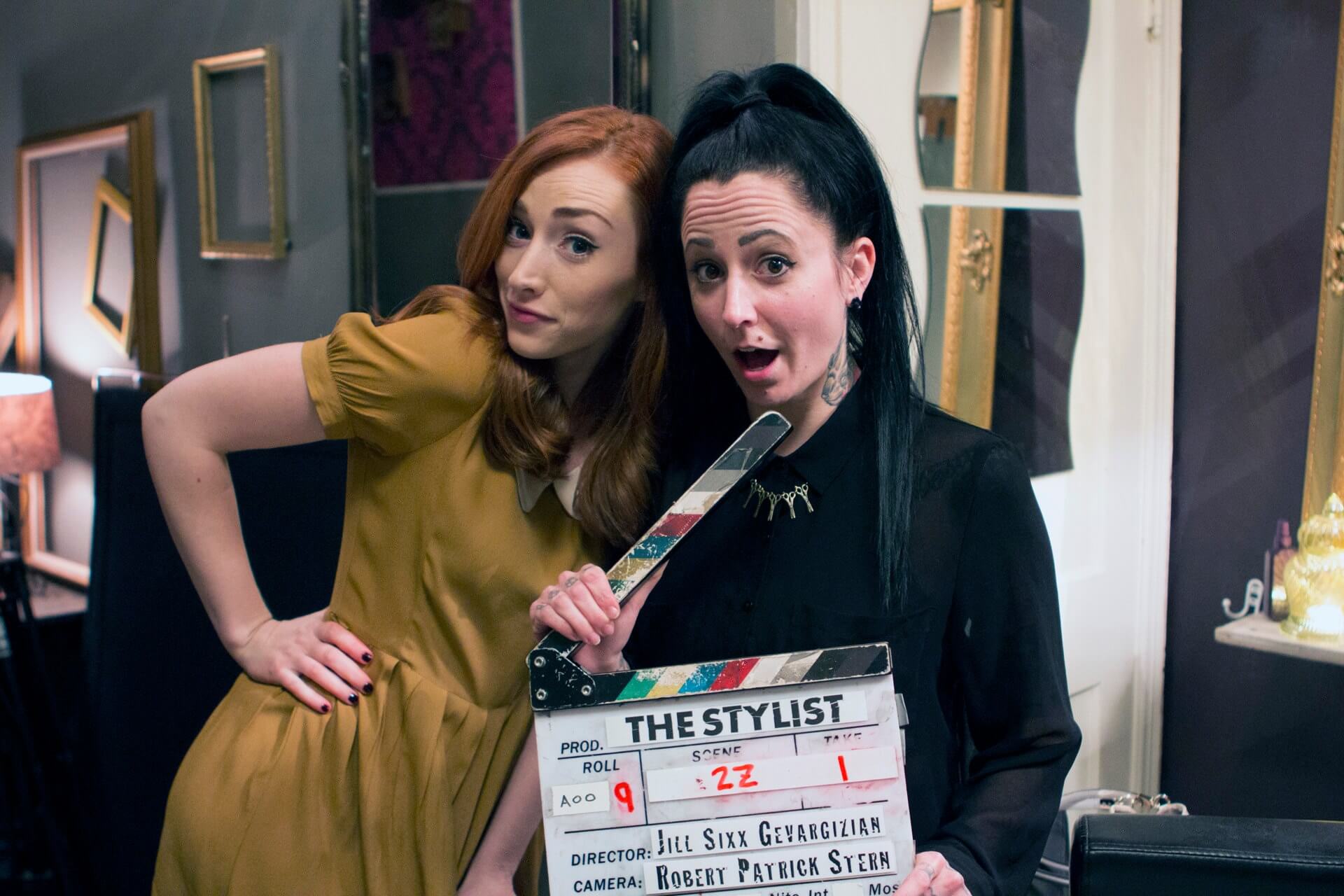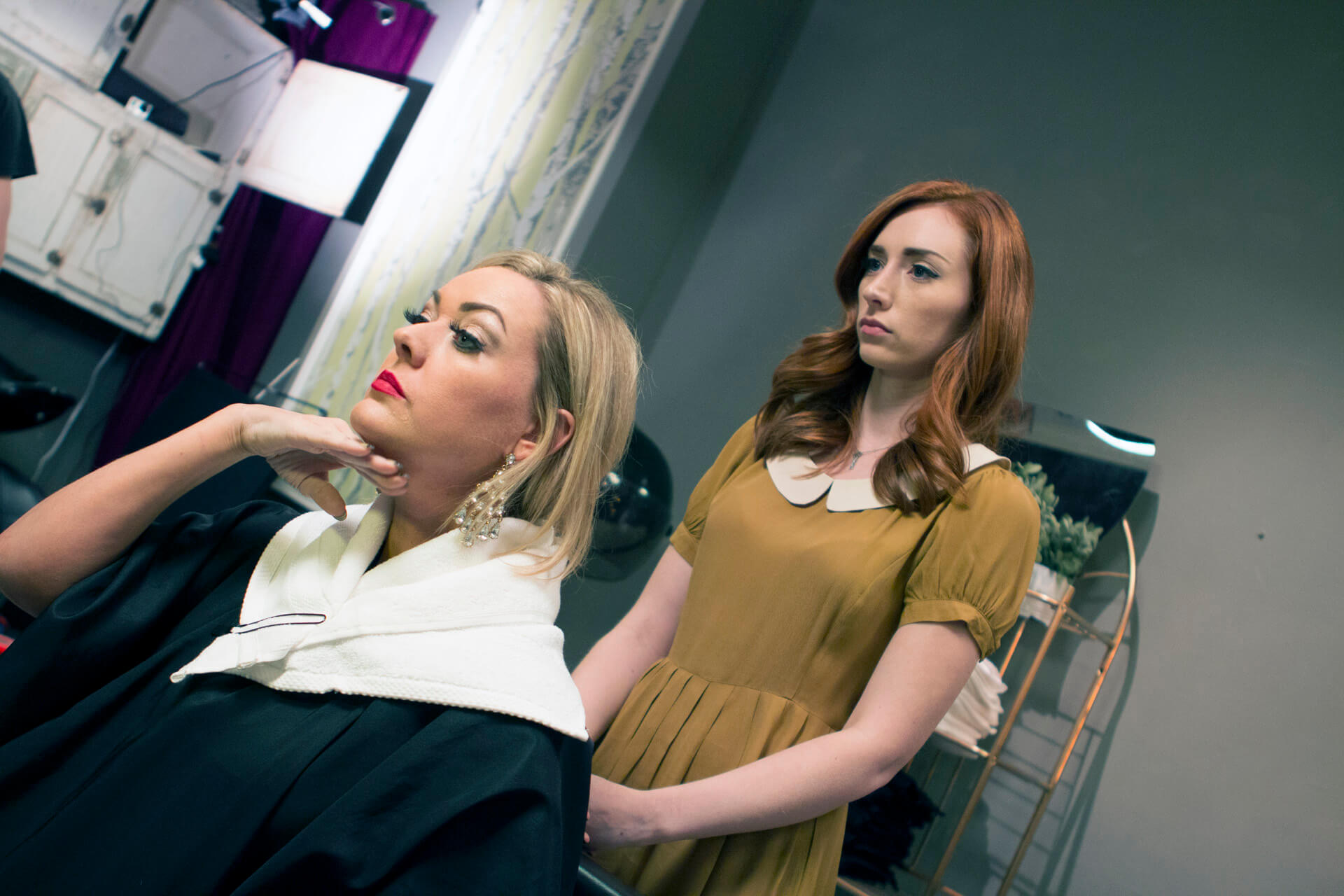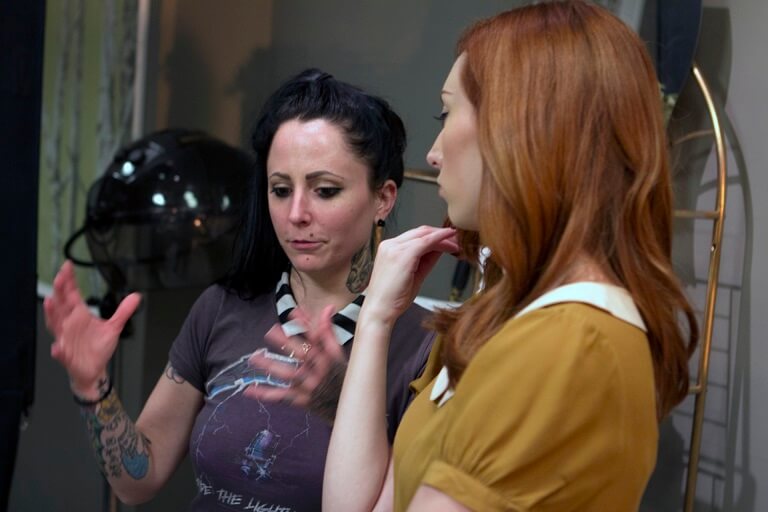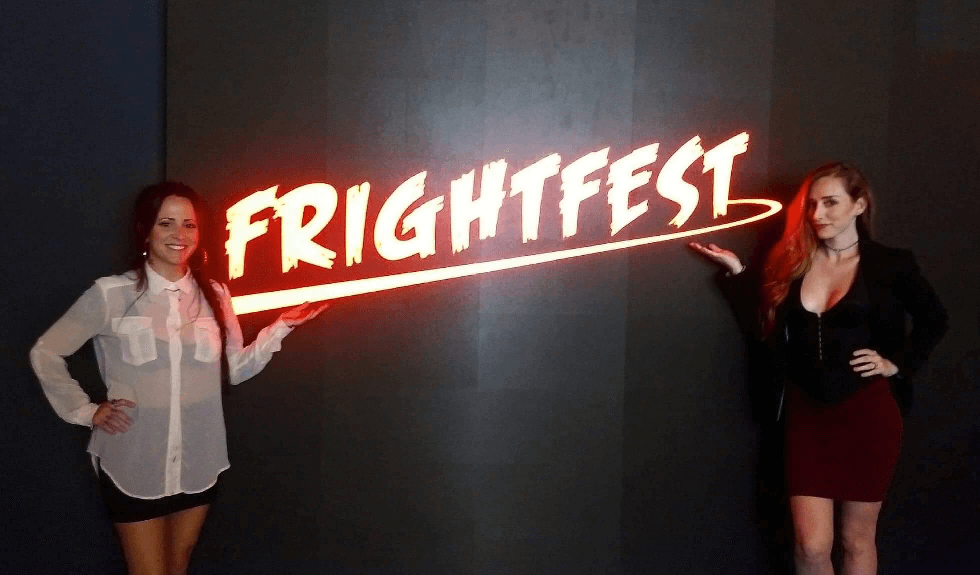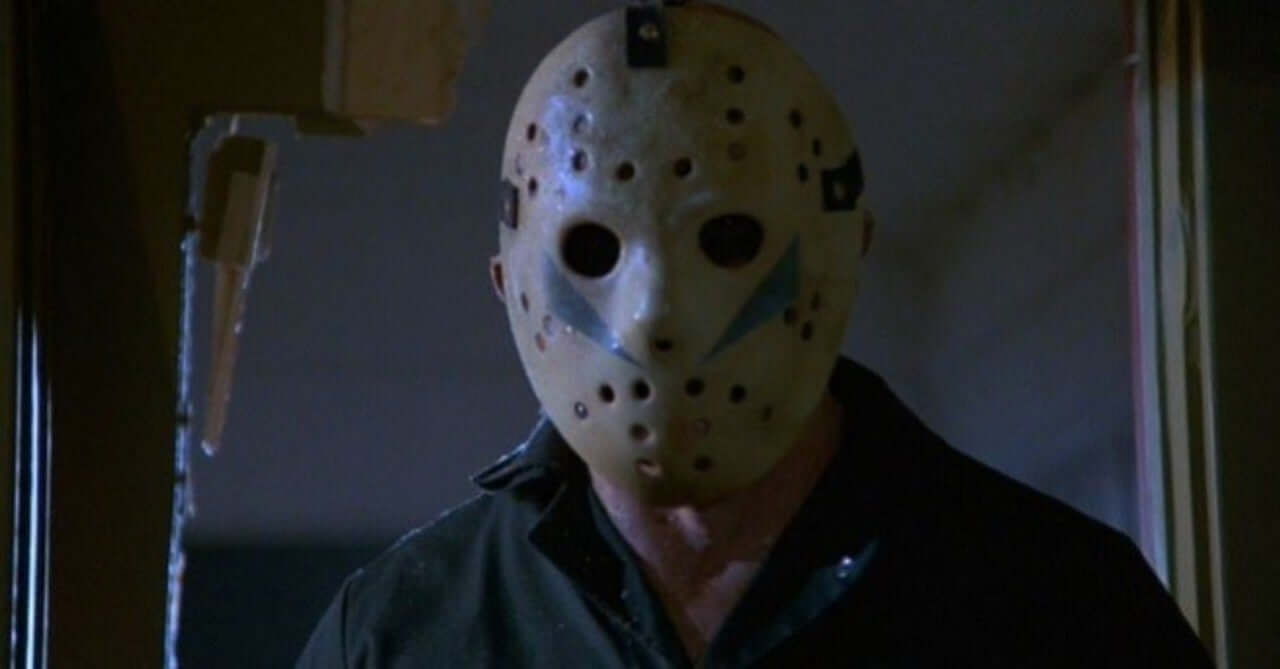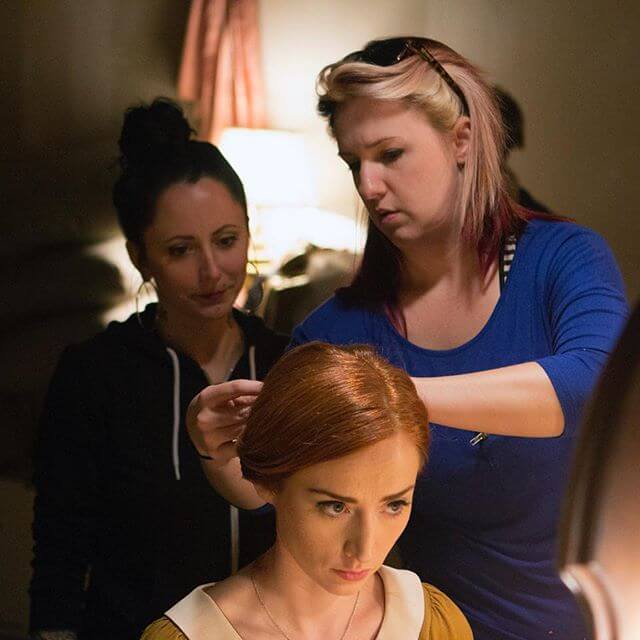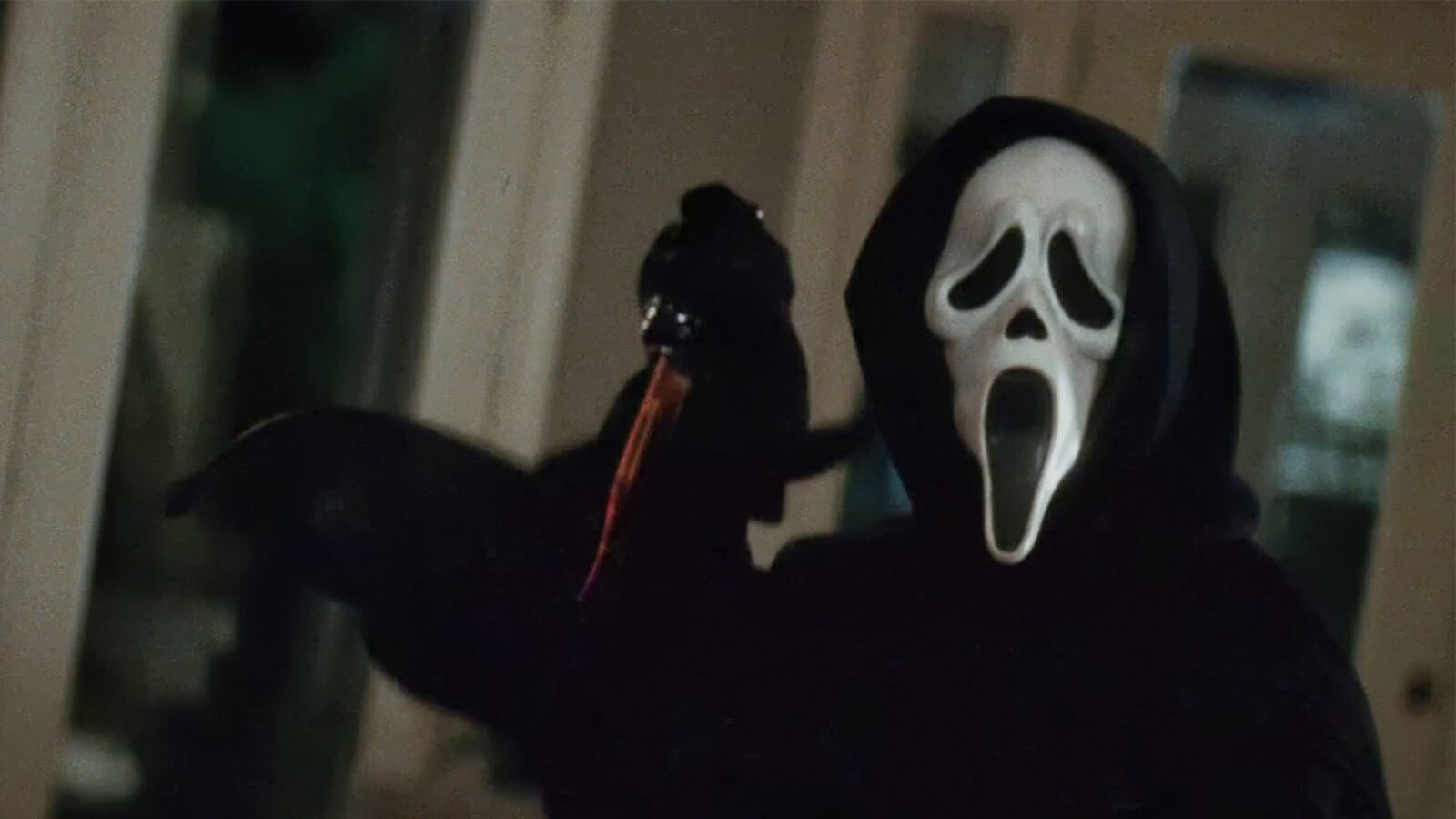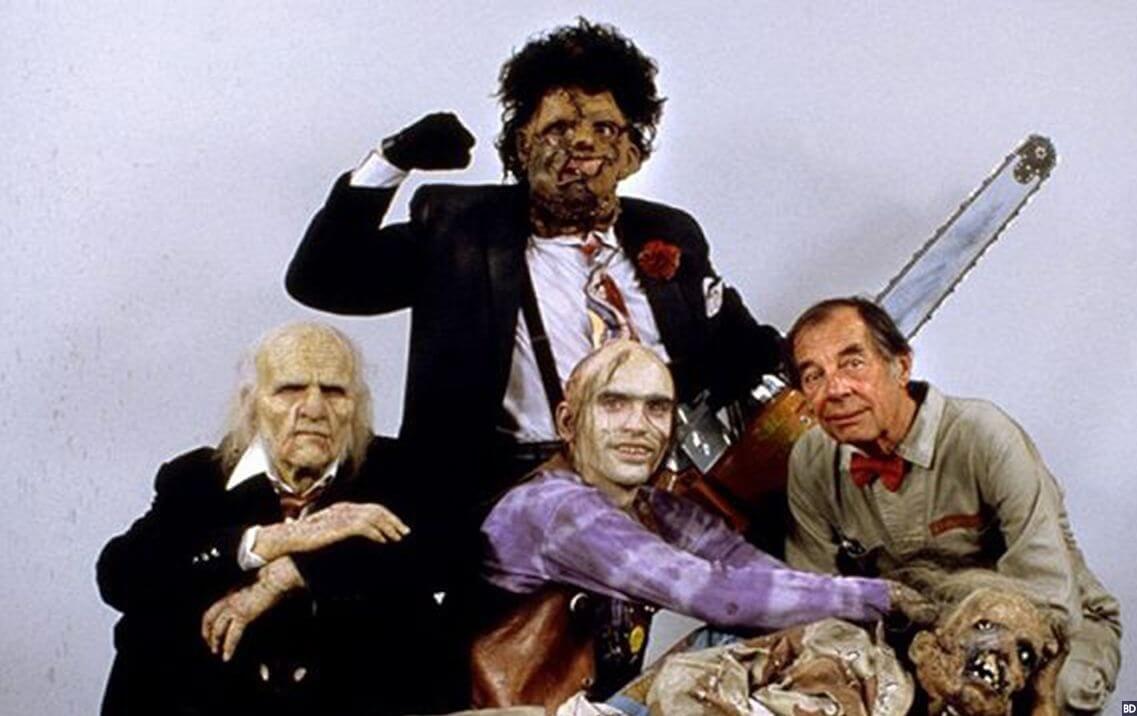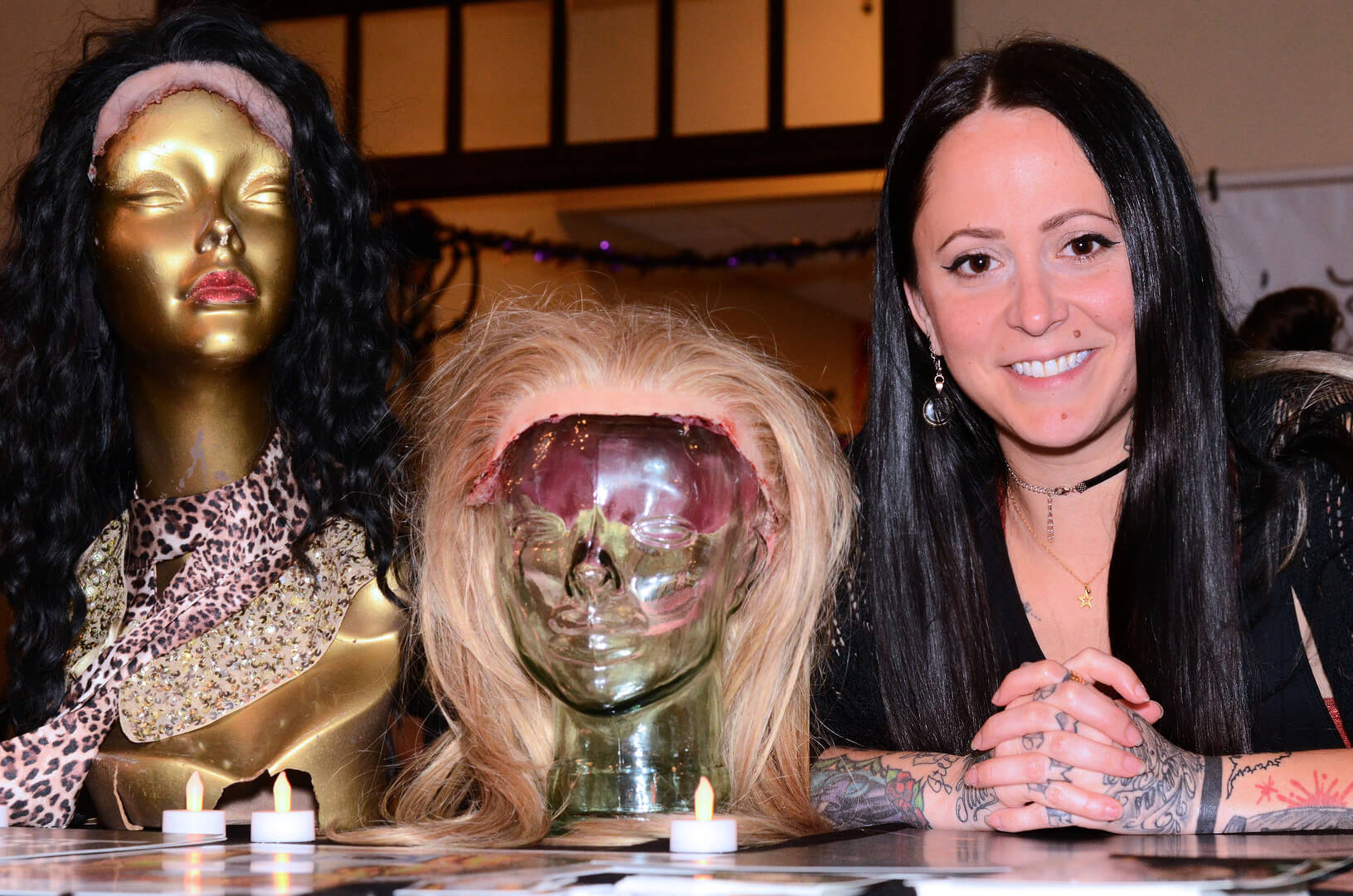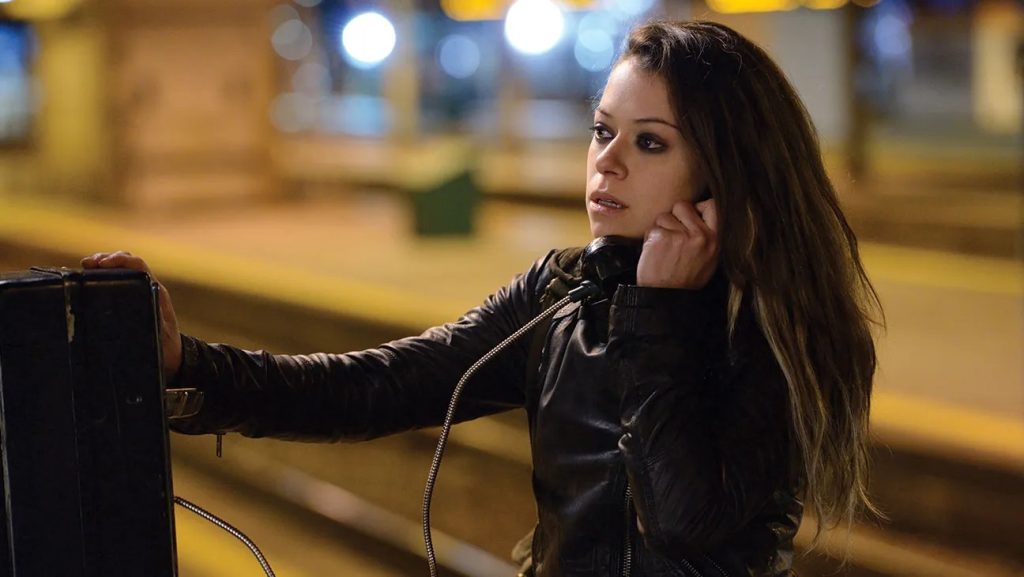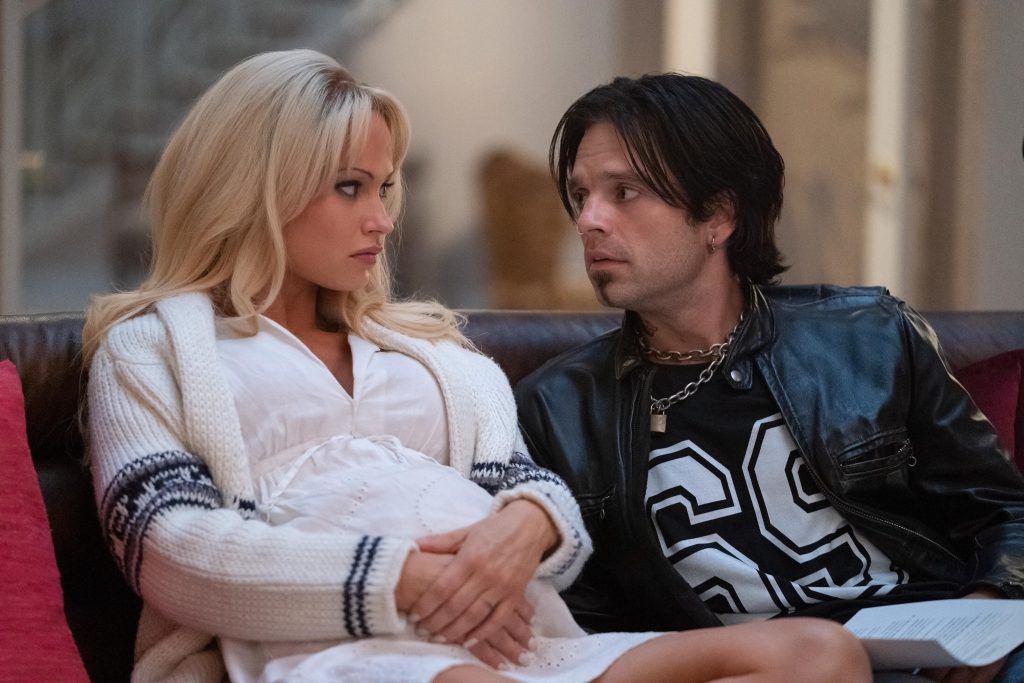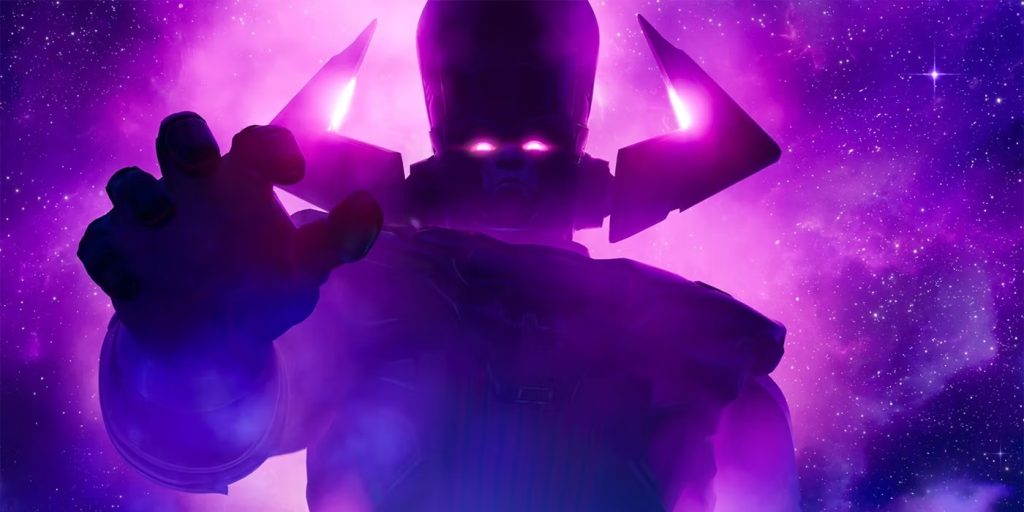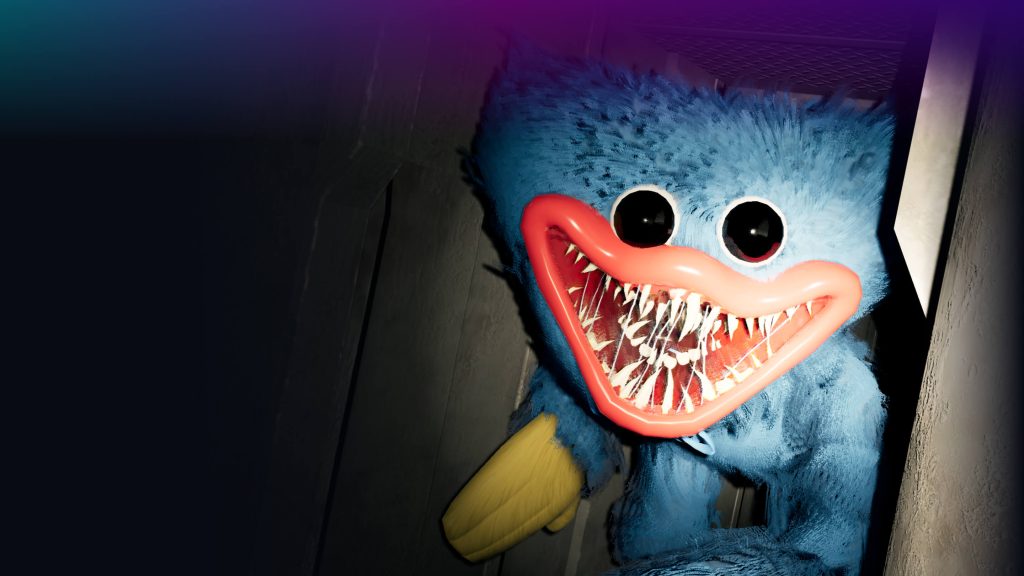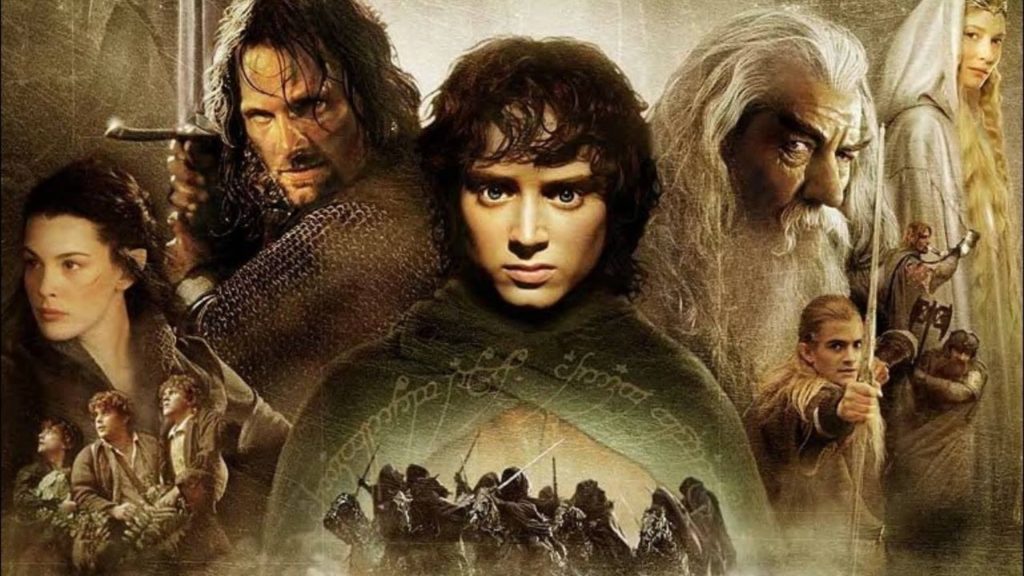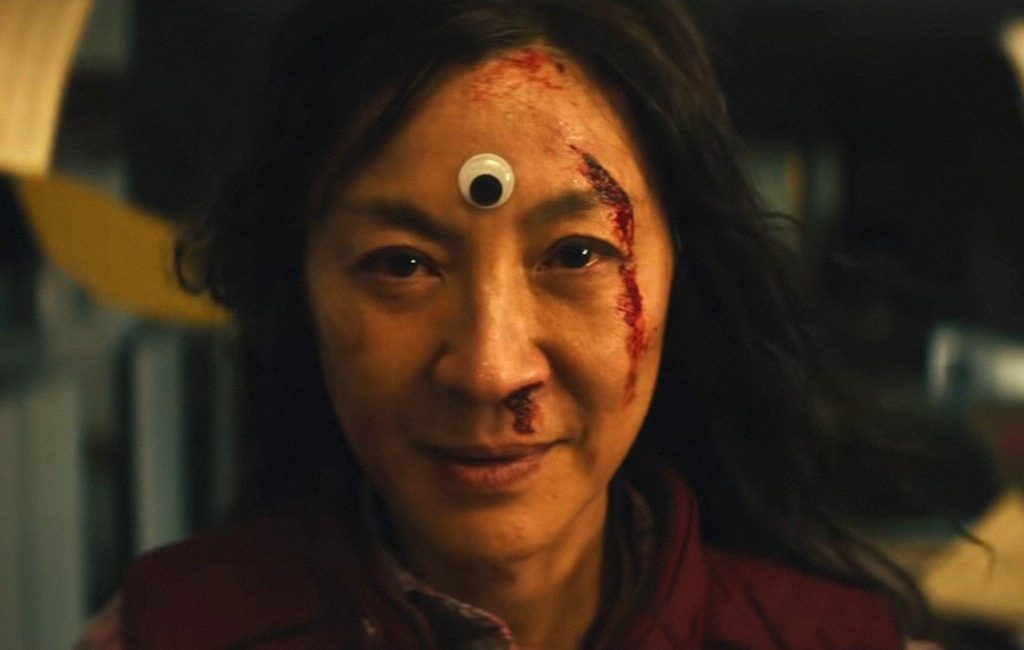Right now, the world of modern horror has so many fantastic talents looking to stamp their mark on the genre – and one particular standout talent is the brilliant Jill “Sixx” Gevargizian. Having impressed many a horror hound with her short films, Jill’s The Stylist is a short that went on to win a slew of awards across the globe and well and truly put Jill on the horror map. As Jill gets set to take the concept of The Stylist and extend it to make her feature-film directing debut, we caught up with the ridiculously talented filmmaker to discuss the process of developing a short film into a feature-length movie, her plans for Najarra Townsend’s scalping-taking Claire, her influences within the genre, how the ’80s hindered horror, her love of Idle Hands, and a ridiculous amount more in what truly was one of the most fun interviews we’ve ever done here at Starburst.
STARBURST: Why was now the right time for you to take the jump and go the crowdfunding route for a feature-length take on The Stylist?
Jill Gevargizian: Well, we’ve been trying to get it made for a couple of years, but clearly it has not landed yet. We’ve been trying to make it for a much bigger budget than this Kickstarter budget. It’s really not written to be a micro-budget – which is what this Kickstarter budget reflects – so we were trying to get it made “the real way”, which was sending it out to potential investors and producers. We just weren’t getting anywhere. I’ve got multiple projects in that stage, and I’ve learned that that’s the kind of thing that you’re just lucky if it ever hits the right person at the right moment. I was just like, “I’m done doing this. We’ve been doing this for two years. Are we going to wait another five years to never make this movie?” I feel like I get the vibe that a lot of people who are potentially interested in my work are still thinking that they wish I had that experience of a feature already. It’s like this Catch 22, where everybody wants me to have the experience, yet nobody is giving me the opportunity – so I’ve got to figure it out myself.
Considering that the short itself has such a cinematic feel to it, you’d like to think that that would be enough for an investor to see the potential for you to helm a feature.
That’s what we hoped. There’s hundreds and hundreds, thousands upon thousands of filmmakers in my position every day, just sitting with features that they’re trying to get made. It’s just so much luck that it ends up happening where someone hands you $500,000 or more to make a movie. I just got fed up. I’ve been through a lot in life that teaches me that you can’t wait for stuff like this. If you want to do it, you need to figure it out.
So far, we’ve obviously seen Claire’s story in a 15-minute short. Is it a daunting or more exciting prospect to look at fleshing this character and her world out for a 90-minute feature film?
Yeah, I was excited to do it. Really, the biggest question or challenge was what part of her life are we tackling here, how much are we showing. So many people wanted to know how did she become this way – that was the reaction we got so much from the short – and everyone wants everything to be explained. I’m not a big fan of that in movies. They need to leave you with stuff to think about, not just lay everything out for you. That’s really what led me to how we’ve structured the film. I was always wanting this to be a feature, so I’m so excited. It’s really a character piece that’s super-focussed on the character of Claire. You’ll all get to see and learn a lot more about her.
As you touched on there, it’s so often a fine balancing act between giving a peak behind the curtain as to what makes a character tick, while not wanting to give everything away.
I think there’s the kind of people that only think in such a practical way, the type of people who relate to movies and say, “Well, that would never happen.” It’s a movie, that’s the point, that’s what we’re trying to say as filmmakers. I struggled with how I would be able to tell her background without doing the flashback thing. The films I was really looking to as some of my biggest inspirations, they do that, but I really don’t want to do that. How can we do this without that? It just seems like a cheap way to give exposition about what’s happening or why.
And there’s also the notion of holding things back for any further Stylist movies that you do. Who’s to say that this won’t spin-off to become a thirteen-film franchise?!
That’s the dream. I’ve joked about The Stylist 10, where she’s in space with Jason.
The Stylist is extremely minimalistic in terms of its characters, as in two people and a Chihuahua. We imagine that there’s more characters and more victims for a feature film, so have you got this world and new characters planned out?
We have! We’ve actually been working on the script since the second we finished the short – which was almost five years ago – so we’ve had a solid version of it that we’ve been in love with for the last year. I’ve been trying to make it tighter due to making it for almost no money at this point, but that has been interesting. It is still a very intimate story with Claire, but like you said, in an hour-and-a-half we’re going to go to more places than her salon and her home. It is a much bigger world, and there is one other character that is pretty large. It’s a client of hers that’s about to get married, and Claire’s doing her hair for the wedding. Through all of the preparation leading up to it, she’s really involved in it and included. This is a client that she’s had for years, but she views it as a much different thing than what’s really happening. She thinks they’re developing this really deep friendship, and this is something she’s never really had in her life – so she’s trying to be a better person and change for this person. When she realises it’s not what she perceives it to be, she just totally spirals out of control. In that way, it’s very similar to something like Single White Female. It has a lot of that thriller vibe, mixed with a slasher, but not nearly as slasher-y as Maniac or Friday the 13th. We’re not killing, like, ten people – spoiler alert! It really is more a psychological thriller to me, but I’m also a huge fan of gore so I’ve got to get that in there, too. It is a much bigger world. I would say that it’s not written for small budget. Normally when you do that, you really contain everything – maybe have one or two locations, a few characters – but this is over 15 locations, a lot of characters, and all the leads are female. So, it’s a big thing to tackle on a Kickstarter budget, but we can do it.
When you first envisioned adapting one of your shorts as a feature, was it always The Stylist or was it ever one of your other shorts, such as Call Girl?
It was always The Stylist. It wasn’t even that it just worked well, but, before I even made the short, it was a feature to me. I knew that I couldn’t make a feature yet, so I made the short. None of the other ones are features to me. I feel like some of them could be turned into that, but a lot of shorts that have done well are forced into a feature, and the features aren’t good for that reason because it was never that intention. Like Lights Out. This viral short film. I guarantee that filmmaker, it was never their intention to expand this one-minute thing to a feature film. It was always my intention with this one. Really though, we should have been prepared as soon as the short came out. We had a lot of interest back then from exciting people, exciting companies. They just approached me with, “This is a feature, right?” I was just, “Yeah, but not even close to being written.” I was really down on myself for a while about that, about not being prepared. Then I was, “Well, I’ve gotta do something about it.”
The Stylist was only the second short that you’d done, and it received universal praise from fans and critics across the board. Was it a little surreal or just outright awesome to get such great feedback?
It was. It was both of those things. I’m so excited and proud about it, and I’m not ashamed to be proud about it. It was so exciting, but I also think that affected my progress in getting the feature written, because I couldn’t stop focussing on why I didn’t already have it ready now, that I was missing my moment. All that gave us the confidence of doing a Kickstarter, though. We did it for the short, but that was a significantly less amount of money, and I was real nervous about raising so much. From talking to the team about the film, everybody thought that we could do it with how well the short did and how many people have seen it. It’s such a great thing to have when promoting the Kickstarter – we have all this imagery, we basically have a 15-minute trailer for you to watch.
It’s the perfect proof of concept!
People don’t realise that there’ll shoot proof of concepts that no one will ever see for films all the time. I’ve made a trailer like that for another feature we’ve got in development. It makes me sad that I can’t post it online, because we spent a lot of time on it. But if anything, I was just, “Well, we have this short to help us make the feature.” A lot of people ask whether this short exists in this feature, whether it’s in the beginning or the end. It doesn’t exist in the same story – it’s just capturing the same moment of her life in a shorter time span – and my intention for the short was to feel that she was spiralling out of control, because she was making a lot of bad decisions that would lead to her getting caught.
With Claire, in the short she comes across as this tragic, almost sympathetic villain. For the feature, is then plan to follow that sympathetic route or is there the urge to just make her into some crazed, bloodthirsty character?
No, I definitely want her to be sympathetic. My favourite kind of characters are the tragic characters, such as the classic monsters like Frankenstein’s monster or Dracula. A lot of these characters are presented like they are damned to their existence. They didn’t have a choice and they don’t necessarily like what they are or what they do, but they can’t control it. All the Frankenstein films have been very sad, they’re all tragedies. To me, Leatherface is kind of tragic – only in the original – and Candyman is tragic to me. A lot of those types of characters are scary, but it’s confrontational as a viewer because you get to know them more. A villain like Jason, for instance, is way more flat and more comedic, so it’s different. We don’t get to know a lot about those villains, so we don’t have any feelings about them. I like to get to know the people who are technically the “bad” person. I’m even sympathetic to things that I shouldn’t be in real life. My most recent short film is set in prison, which made me go on this crazy dive of only watching things about prison or only reading things about prison. That opened my eyes to whether these worst people in the world should be treated as less than human. Everyone came from something, everyone is traumatised and have a reason for why they became the way they are. I’m just really interested in that.
You mentioned Jason there, and there was certainly a spell in the ‘80s where the horror genre became all about body counts and relentless killers.
That’s definitely the ‘80s faults! I will say this – and horror fans hate me for it – but the ‘80s, as much as people love it, it’s also what made the genre a joke. The genre was respected before the ‘80s, then it turned into this blood ‘n’ boobs and low-quality filmmaking. I even like some characters, though. Take something as extreme a Henry: Portrait of a Serial Killer. That’s a film that really messes with you; that movie is like a gut punch. Sorry for anyone who hasn’t seen it, but the ending really fooled me. I really thought there was something good in this guy. Maybe the relationship with the female character, I believed that was real. And then he just kills her at the end! It was a really interesting point to make. I love films that end on a devastating moment.
You could even argue that that shocking, gut punch ending is a little bit of a lost art these days.
Hollywood and the more mainstream people want you to tie movies up a little nicer. Even at the end of the feature of The Stylist, I feel that a big-time person would convince me to add a scene on where it ends better.
Away from the financial side of things, what do you see as being the biggest challenge of taking The Stylist to a feature?
I can’t think about anything but the producer stuff. That’s so challenging. As a director, it really is related all to that. We’re trying to problem solve, like, “How can we shoot this in this many days?” The reality has been setting in only recently that once this Kickstarter is done, I’ve got a lot of work to do. We’re shooting this in January, so I need to storyboard the whole script. It’s going to be just such a huge project for me because I’ve only done short film. I’m an immaculate planner type. I spend four months planning out a short film, and I feel I only have that much time to plan out a feature. It’s not as if I can do that full-time, as I’ll be working a full-time job while preparing for this. But that’s kind of been my love. I joke that I really don’t have a social life outside of stuff that has to do with film. If you’re going to do something like this, you really need to put all of your time in it. It’s honestly a bit terrifying to realise that we’re actually going to be making this movie. It’s still just this exciting idea in my head. I’m always switching hats between being the producer and the director. On a budget this small, you have to be thinking in both ways. You have to think about how can you pull things off with the time that we have and the resources.
You’ve got Najarra Townsend returning as Claire, but will the rest of the core crew from the short be involved?
Most of the team from the short film will be returning. We haven’t approached every single position just yet because it’s a little too early, and we also need to know what our budget will be so that we know what we can offer people. The cinematographer Robert Patrick Stern and the production designer Sarah Sharp, the also helped produce the short with me and they’re both on this. They’re helping me produce this and they’ll do those crew positions as well. They’re the reason the short looks so good, and they really chaperoned me through making that short. They’re in Chicago but they’ve already come down to Kansas City twice in the last month to do location scouting. Then we really look to work with the same editor, same composer, same colourist, everyone. As far as writers, I wrote the short film with my friend Eric Havens, who also wrote Call Girl. We wrote it as a feature together for a few years, then I brought on another Eric to make it really confusing – Eric Stolze who wrote Late Phases, a werewolf film, and he also wrote my most recent short, One Last Meal. For a lot of things, we have to wait until we’re closer. We can’t expect people to commit to something six months down the line when we can’t offer them their professional rate. We have cast Brea Grant, though, and have cast a local actress, Sarah McGuire, who I’ve worked with a lot on music videos and shorts but haven’t yet had a juicy role for her – and now we finally do, so I’m excited about that. A lot of the other casting, we’re just waiting until we’re closer and we know exactly how much money we have.
Brea was phenomenal in John Schneider’s Smothered. How did you guys end up meeting?
Brea and I met on another project, another feature that we have in development called Permanent Address, written by Eric Stolze. It’s a supernatural film and we’ve been trying to get that made for a couple of years. I’m attached to direct it, Brea is the star of it, and I’m dying to make that. The idea is that if The Stylist does well, then we can right away make that one. Again, it’s another character piece. It’s about a woman in her mid-late 30s who’s just kind of starting over. I really love it.
As Jill the horror fan, what makes you tick? Is there a go-to movie or two that you have?
That’s a great question. What’s funny is right now I really want to see Hustlers, that movie about the strippers. Everyone’s saying it’s great, but I already wanted to see it before that. I feel like I haven’t really been watching movies lately because I’ve been so involved in this Kickstarter. I guess the first one that comes to mind for some reason is Final Destination. That’s one of my original comfort movies. All of the stuff at that time. Idle Hands starring Devon Sawa, I’m a huge fan of. I’m saying I like all of those heavy, serious sad characters, but I grew up in the ‘90s and so I loved all those ‘90s horror films like Scream and I Know What You Did Last Summer.
Scream totally changed the game, and it could well be the movie that got horror out of that ‘80s funk once and for all by forcing the genre to change by poking fun at it – while still being scary!
I was hardcore obsessed with that film. It’s the kind of movie that, when I still watch it now, I’m just, “Oh my god, this movie is so good.” The way that Wes Craven managed to make fun at horror while making a scary horror movie, it’s some kind of magic. Whatever age I was when it came out, I remember finding this website when the Internet was barely working and was very slow, where they had listed out all these references or nods to other films within Scream. I used that list as, “This is how I’m going to become a knowledgeable horror fan. I’m going to watch all these movies.”
The first two were great moves, the third is a bit of a guilty pleasure, but then the fourth…?
It just didn’t have the same magic. People die hard about Scream 4. Every few weeks I’ll see someone on Twitter say Scream 4 is second in the franchise. It’s like, “You guys are fucking crazy!” Nothing’s better than the original cast. I don’t care if Neve [Campbell] or Courteney [Cox] are back for it, the original cast is so good. They were so good that I was so upset when Randy died in Scream 2. That was horrific. Even Courteney Cox – I also grew up a huge fan of Friends – to see her playing this psycho bitch, I just loved her in that film. The one thing that does make me sad, though, is that her and David Arquette didn’t work out. We all like to think that these movies brought them together.
To circle back to The Stylist, the obvious question that you’ve likely been asked a million times is, as a hair stylist, how much inspiration is there from you wanting pull someone’s scalp off?
None. Everyone asks that, though. I must have just been at work and been like, “How is there not a slasher movie about a hair stylist?” Especially in the early ‘90s, when they were making things like The Dentist and The Landlady. How does a version with a hair stylist not exist? There’s just so many weapons and devices that could be used as weapons within a salon. I thought that that would be a fun movie, but I’m more interested in characters and the psychological stuff. I just love brainstorming. The first time I wrote anything down about it – what could she be, what does she do – I just pictured this person twirling around in a room covered in scalps, like trophies on a wall, while wearing one of them. I pictured her as a Leatherface-type character at that point. It was also spawned from the teaching of indie, no-budget filmmaking. The idea behind it of writing backwards. You write for the things that you have access to or that you know a lot about, versus just writing any creative idea that comes to your mind. Setting the movie in space? Yeah, but how the hell are you going to do that. Instead, you look at all of the things you have at your disposal, like cool locations or a cool car – anything – and then you write about that. So I was also inspired by that way of thinking. I have access to salons, I am a hair stylist, I know how to write this from a perspective that I know what I’m talking about rather than people who write movies about professions that they don’t know anything about. We really used that to our benefit. Mostly it’s shot through mirrors, or the camera’s acting like it is the mirror, and we just used that to our advantage in every way we could. It was just all inspired from like, “How does this not exist? I’m going to do it somehow, and I can do it right. And a hair stylist can watch it and know that a hair stylist must have made this movie.” That was important to me.
Maybe it’s in The Stylist 7 that you decide to go all out with the weapons and the gimmicks…
That’s exactly what I’ve been saying [laughs] – even as far as Part 2. I’m a super fan of The Texas Chain Saw Massacre, so I’ll follow Tobe Hooper’s vision entirely and make Part 2 in ten years’ time and just go completely go over the top.
Maybe even get Bill Moseley involved?
He’ll play Chop-Top for no reason in The Stylist 2. That would be the dream.
You’ve directed, produced, written, and even acted at times. When you embarked on this journey into film, what was the endgame for you?
To direct. My first short was written by Eric Havens. I run a screening series here in Kansas City called Slaughter Movie House, which we do the first Monday of every month. I was doing that for a little over a year, meeting all these filmmakers, and I was so inspired. I didn’t realise that people just decided to make movies and then made them. It never dawned on me that it was a thing I could do. I remember I was in a friend’s film locally – House of Forbidden Secrets by Todd Sheets – and I wanted to go on the set and just see what it was like. Then my friend Eric had the script for Call Girl. I was going to kind of help produce it – which I didn’t even know what it meant at the time, but I was good at organising things – and then John Pata decided that he couldn’t direct it for a while, so I asked Eric whether I could direct it. I had no idea what I was doing or what I was really asking, but he said yes. I just started figuring it out from there. I’ve always worked both as a director and producer, though, but I still don’t think of myself as a writer. Whenever I write, I always write with people and I do like directing other people’s writing so long as I can be involved in it and feel connected to it. I’ve read plenty of scripts and just thought, “There’s no way that I can direct this movie.” If you don’t love this, it’s just not going to work. You need that passion. I grew up doing photography, so I’ve always had a love for the visual arts. Filmmaking is like a combination of all art forms, which is what I love about it. With The Stylist, I had an idea and I wrote it out, then I asked Eric to help me flesh it out and write a script. I really like to be involved in the writing, but I know it’s not my passion as I don’t sit around and write for hours every day
Of all the roles you’ve taken on so far, what brings the most pressure for you?
I’m really not an actor at all. I’m not trying to be, so no one think that I am [laughs]. I think the pressure is harder as a director. It’s different in different stages. On set, as a director I’m the end of the line. I don’t mean I’m a dictator and no one gets to say anything, but I have lots of pep talks in my head on my way to set every day. You need to make a decision, get on with it, be confident and move on. That is all it is all day, like, “What are we doing next? Where do you want this? What are we doing with this?” You can’t sit there and ponder over each question, otherwise you’ll be there for three days when it should’ve just been one day. So it is a lot of pressure, as ultimately everyone is going to look to you to have an answer for everything – so you better have one! Everyone needs a leader who they can be confident in or who has the vision for whatever’s happening.
From Call Girl to where you are now, how do you think you’ve changed as a filmmaker?
With Call Girl, it was a small project in some ways, but big because we had these genre actors who really intimidated me as a first-time director – both Tristan [Risk] and Laurence [Harvey], because of their experience compared to my zero. I’m always working with people I’m intimidated by. I want to be working with people that I look up to, which kind of makes me nervous in a way. Najarra still does that, and I’ve known her now for four years [laughs]. I guess what I’ve learned over the years – and I’m sure the people I’ve worked with are going to roll their eyes at this – is how to collaborate with people better. I think it’s natural for a director that you have a very specific idea in your head of what this is going to be, and you can get sensitive about that and appear crazy and controlling; you don’t let anyone else have input, and that’s not the way to be and that’s not how films work. For me, I just naturally react real sensitively. I have this very specific idea of how something is going to be or look or playout. When someone suggested something different, at first I was really thrown off by it. But I’ve learned that you just have to think clearly. Every single person on this project is here to make it the best it can possibly be – no one is here to sabotage it – so there’s no reason to believe that someone is here to mess it up. Let’s hear them out and hear they’re idea – and it’s probably freakin’ awesome. I’ve really learnt this in the editing process, when you’re in post-production. I storyboard, so I have essentially edited in my head before we shoot, but editors will always have these crazy ideas to rearrange things or completely remove a line of dialogue that changes how the whole film feels. At first, those ideas give me a mini meltdown in my head, but we try the idea and it’s often amazing. If you have mapped out plan that you know is going to work, you might as well try the other things because you can always fall back on the original plan.
With your movies, do you feel that you pull particular influence from certain directors and certain movies?
Yeah, I do that for each movie, I make a watchlist of films I’m inspired by in different ways. Some of them will reflect a connection to a character or a story itself – nothing that is visually similar – but I seem to always, with every film, visually go to David Fincher’s work. He’s my biggest inspiration in many ways. His stories are a little different from what I’ve done so far, but I’m really obsessed with crime thrillers. He’s one of those psychotically meticulous filmmakers where every shot, everything that is happening within it, is so planned out. Everything you see in the background – the framing of it, the actor’s face, where they’re looking – everything has intention and reason, and it’s never just because it looks cool. That’s what makes me believe that the greats are the kind of people who take that time – that every little thing has a reason. A viewer might not know why every little thing is there or even perceive all of that, and I think that’s what makes those films better. We don’t necessarily know all of that, but somehow all of that is being absorbed into us. It makes me feel like a sell-out in some way that I don’t have some weird avantgarde filmmaker, but it’s him and someone like Martin Scorsese – who I think is the same type in terms of being meticulous. And both of their cinematography is similar, that they’re both the type who really never do handheld. It’s very controlled, beautiful cinematography that’s always operated by a thing, not a human. I’m really anti-handheld in my stuff, except when you can use it very sparingly and it can have an impact. I do see that there’s a place for it in filmmaking and that it’s a style choice, but it’s just not mine.
With Fincher and Scorsese, they’re two filmmakers who always seem to make every detail of every frame matter.
Scorsese, he’s made so many movies that so many people don’t even know half of them. He has the ten to 20 that are huge and everyone’s heard of, and they’re so often about these really bad male characters that are completely destroyed by their own fame and greed. I like that about his work, that there’s a clear theme in so much of it – these bad people that you feel for in a way.
For The Stylist in particular, was there anything you used as direct inspiration?
I was really inspired by May, Lucky McKee’s film. Visually, the final scene in May when she’s at her vanity unit, we shot it exactly like that for the end of The Stylist. I was watching May over and over again, and David Fincher’s Zodiac, which isn’t anything like this story – it was the production design in that movie that I was focussed on, and the use of colour. I’ve became obsessed with colour, and every film since The Stylist we’ve picked out a very specific colour palette. Zodiac, to me, it looks hyper-stylised and there are certain shots that are almost like a comic book. There’s such bright yellow, with everything else just muted. It just opened my eyes to making a film just really artistic and not just like real life.
What are the pressures that you’ve found of going the crowdfunding route?
It’s been good. It’s very stressful, honestly. Every day I’m texting one of my producers, so he sees my emotional rollercoaster every day. At one point in the day I’m like, “Why did we do this?!”, then the next moment I’m, “We’re gonna make it, we’re almost there, we just got another huge donation!” But really, it’s stressful as hell. It’s an amazing feeling to see that we’ve got 311 backers so far, and that that many people are so excited about the project. It’s comforting because it can feel lonely for me at times, that I’m the only one who is really super stressed out about it actually making the goal.
If all goes well, in an ideal world, when should people be expecting to see the feature film version of The Stylist?
We plan to shoot it in the beginning of next year, so ideally we would play a festival the following year. Huge films spend a couple of years in post-production, but we hope to have it done within a year; we hope to be playing somewhere in early 2021. As far as it being distributed, that’s something we have no way of knowing yet. We want to aim for the biggest possibility, so we can’t promise a date yet because, for all we know, we could get picked up by a big company. Because of that, our lowest rewards option of $25 means you get to watch the film through a private link straight after showing at said festival so that you won’t have to wait until the proper release to see it.
To wrap things up, as a horror fan and as someone working within the genre, why do you think horror is so special to so many people?
The genre itself, a lot of the films are exciting and it’s almost like challenging yourself to watch something. I just think that anyone who likes it is obsessed with it, clearly. It’s the same sort of fandom that spawns off comic books and other things. I think it’s the same sort of people who like an adrenaline rush, who like to push themselves and jump out of planes or bungee jumps. It’s a way of controlling anxiety [laughs].
The Stylist is funding on Kickstarter until September 26th and you can support the project by clicking here – and be sure to check out the award-winning The Stylist short below:

